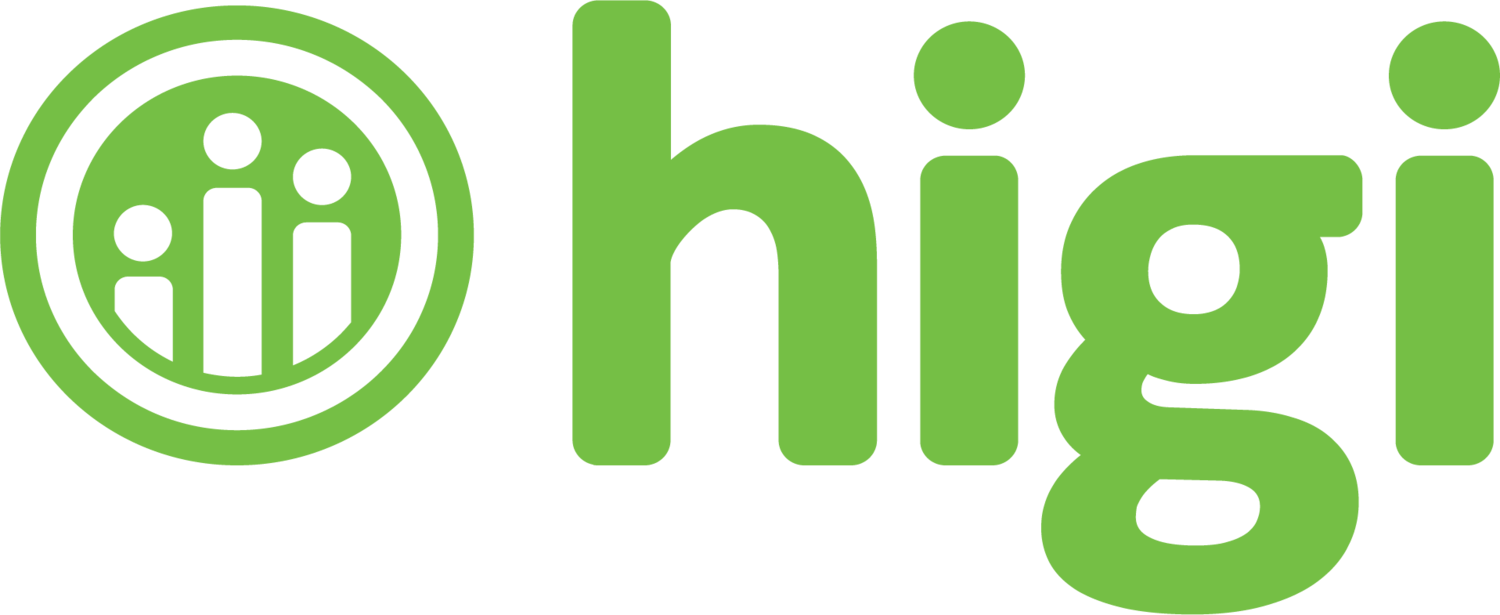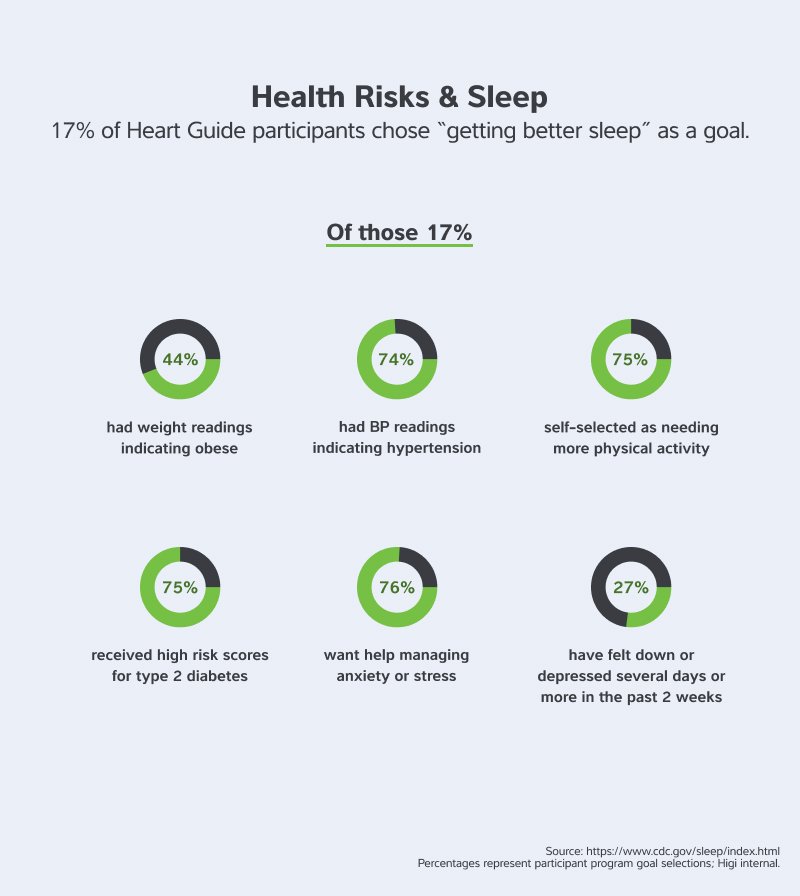How many of us aren’t getting enough sleep?
Failing to get enough sleep might not seem like a big deal, but the health implications can be severe, with the impact accumulating over time. The CDC tells us that over a third of adults (35%) have short sleep duration, defined as getting fewer than 7 hours of sleep per 24-hour period. Compared to adequate sleepers, adults sleeping 7 or more hours per 24-hour period, short sleepers have higher rates of obesity, greater risk for type 2 diabetes, are more likely to be physically inactive and are more likely to suffer from depression.[1]
These patterns hold true when we look at the numbers from our Heart Guide program, available at no cost to consumers across Higi’s network of Smart Health Stations. By participating in our Heart Guide program, powered by the American Heart Association®, participants can identify their own personal health goals and receive clinically based guidance and support to achieve them.
Despite the importance of sleep to their overall health and condition risk, only 17% of participants in Higi’s Heart Guide program identified sleep as an area of focus when identifying their Blood Pressure goals. Notably, when compared to all program participants, this subset is more likely to screen in the hypertensive range (74%, compared to 58% of all Heart Guide participants) and more likely to want help managing anxiety of stress (76%, compared to 18% of all Heart Guide participants). These gaps highlight the proven impact of getting the right amount of sleep on both physical and mental health. Additionally, this subset is more likely to select “getting more exercise” as an area of focus (75%, compared to 18% of all Heart Guide participants) further spotlighting the circular link between getting enough rest and having the energy to participate in adequate physical activity throughout the day, lack of which is tied to an increased risk for multiple chronic diseases, including hypertension, obesity, and type two diabetes.
[1] https://www.cdc.gov/sleep/data_statistics.html
In addition to the long-term implications, studies have shown that even a single night of inadequate sleep for those already suffering from hypertension can result in increased blood pressure the next day.[2] While the health goals within our Heart Guide are self-selected, education on the importance of sleep, as well as the benefits tied to chronic condition risk, could be important for those managing high blood pressure and looking to reduce their risks for heart attack and stroke.
For healthcare organizations looking to address long-term risk factors among patient and member populations, understanding sleep patterns, challenges associated with achieving adequate sleep, and educating their constituents on the value of sleeping 7 or more hours each day can support an overall healthier lifestyle for those populations. As an additional touchpoint for higher risk populations, Higi’s Care Everyday Remote Patient Monitoring solution further addresses chronic diseases with linkage to inadequate sleep, including diabetes and heart diseases, and hands on clinician care managers support lifestyle modifications and help participants address underlying challenges that may be associated with poor sleep. Health plans can leverage the Higi platform to understand and address member health risks and engage those members over time with guidance and support as well as navigation to relevant member benefits, including those that support better sleep. For health systems managing patients with chronic condition risk factors, Higi provides an easily accessible platform to offer additional support and guidance, as well as monitor those patients over time.
[2] https://healthysleep.med.harvard.edu/healthy/matters/consequences/sleep-and-disease-risk

